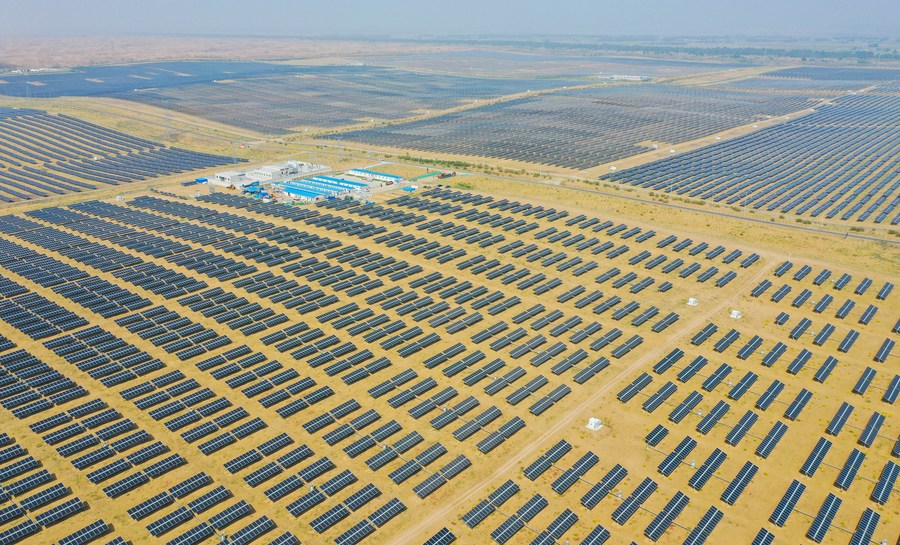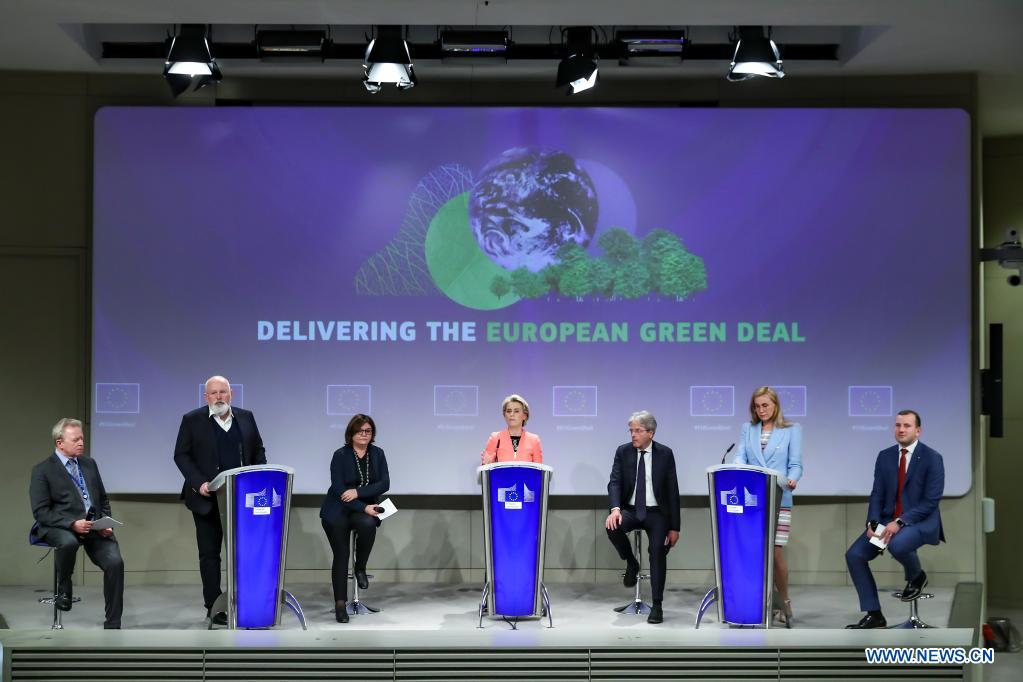A Moral Imperative to Achieve Climate Safety

An agreement among these governments—followed by specific actions—can change the global trajectory on climate change.
The world set a goal in the Paris Agreement: to keep global warming within 1.5 degrees Celsius of pre-industrial levels. The Intergovernmental Panel on Climate Change has explained why this is a valid goal. If global warming were to go higher than 1.5 degrees Celsius, this would jeopardize life on the planet with a potential multi-meter sea-level rise, the collapse of critical ecosystems, and the release of methane from thawing permafrost, possibly triggering runaway warming. Yet the world’s current trajectory implies a catastrophic 2.7-degree-Celsius increase in global temperature.
Earlier this year, the International Energy Agency (IEA) showed the technological pathway to achieve the 1.5-degree-Celsius target. We must decarbonize the world’s energy system by mid-century. This is feasible, by shifting from fossil fuels to renewable energy and green fuels in power generation, transport, buildings and industry. Beyond that, we also need to stop deforestation and restore degraded land on a massive scale.
First, governments need to plan the energy system and changes in land use through to mid-century. With roughly 28 years left to 2050, and the need for a massive overhaul of energy systems and land use practices, governments must strategize the necessary public investments and policies. And they must gain acceptance and support for those plans by subjecting them to public scrutiny, debate and revision.
Second, governments must regulate. As the IEA wrote clearly in its report, there is no need or justification for new fossil fuel investments. Period. We have enough confirmed fossil fuel reserves. No country should be given the green light for new exploration and development of fossil fuels.

Third, governments must finance—at scale—zero-carbon infrastructure such as national and regional renewable-energy power grids (for example linking the EU, North Africa, the Eastern Mediterranean, and the Middle East), as well as the electrification of transport and buildings.
Fourth, governments of wealthier nations must help finance poorer countries’ efforts to make the needed investments. Affluent countries have long promised to do so, but have failed to mobilize even the pitiful $100 billion a year—a mere 0.1 percent of world output—they originally pledged in 2009.
Fifth, developed countries should compensate the developing world for the climate havoc they have already wreaked and which is bound to increase in the future. The U.S. has emitted 25 percent of carbon dioxide emissions dating back to 1751, despite hosting fewer than 5 percent of the global population. Countries worldwide are suffering massive climate disasters as a result of U.S. energy malfeasance. Nevertheless, the U.S. and other major historical emitters have offered nothing in compensation for the damages caused.
Lastly, the world’s rich people, responsible for the preponderance of fossil fuel use both in their own countries and on a global scale, need to pay their fair share of the costs of climate adjustment. Yet, by and large, the richest layer of society escapes fair taxation.

Many governments are taking steps in the right direction. The EU is in the lead, with the European Green Deal, which pledges the EU to achieve net-zero emissions by 2050. Japan and the Republic of Korea have also pledged to reach net zero by 2050, and U.S. President Joe Biden is trying to bring the U.S. in line. China, Indonesia and Russia have set a net-zero target of 2060, which is heartening but can and should be accelerated.
The U.S. is showing signs of another massive political failure to tackle climate change, despite Biden’s efforts. Since ratifying the UN Framework Convention on Climate Change in 1992, the U.S. Senate has blocked any action to implement the treaty and the Paris Agreement.
The remarkable thing about American corruption is how blatant it is. The oil and gas industry spent $140.7 million on the 2020 elections (donating 84 percent to Republicans) and $112 million on lobbying last year. Biden’s hold on power is so weak, and the corruption of the U.S. Congress so entrenched, that the president cannot even face down a small-state senator from his own party, who should be shamed and derided for his devotion to Big Oil.
The Group of 20 governments have a moral imperative to adopt the means to achieve the globally agreed goal of climate safety. Their countries account for roughly 80 percent of global output and carbon dioxide emissions. An agreement among these governments—followed by specific actions—can change the global trajectory on climate change.
The author is director of the Center for Sustainable Development at Columbia University. This is an edited excerpt of a recent article by him.
 Facebook
Facebook
 Twitter
Twitter
 Linkedin
Linkedin
 Google +
Google +










